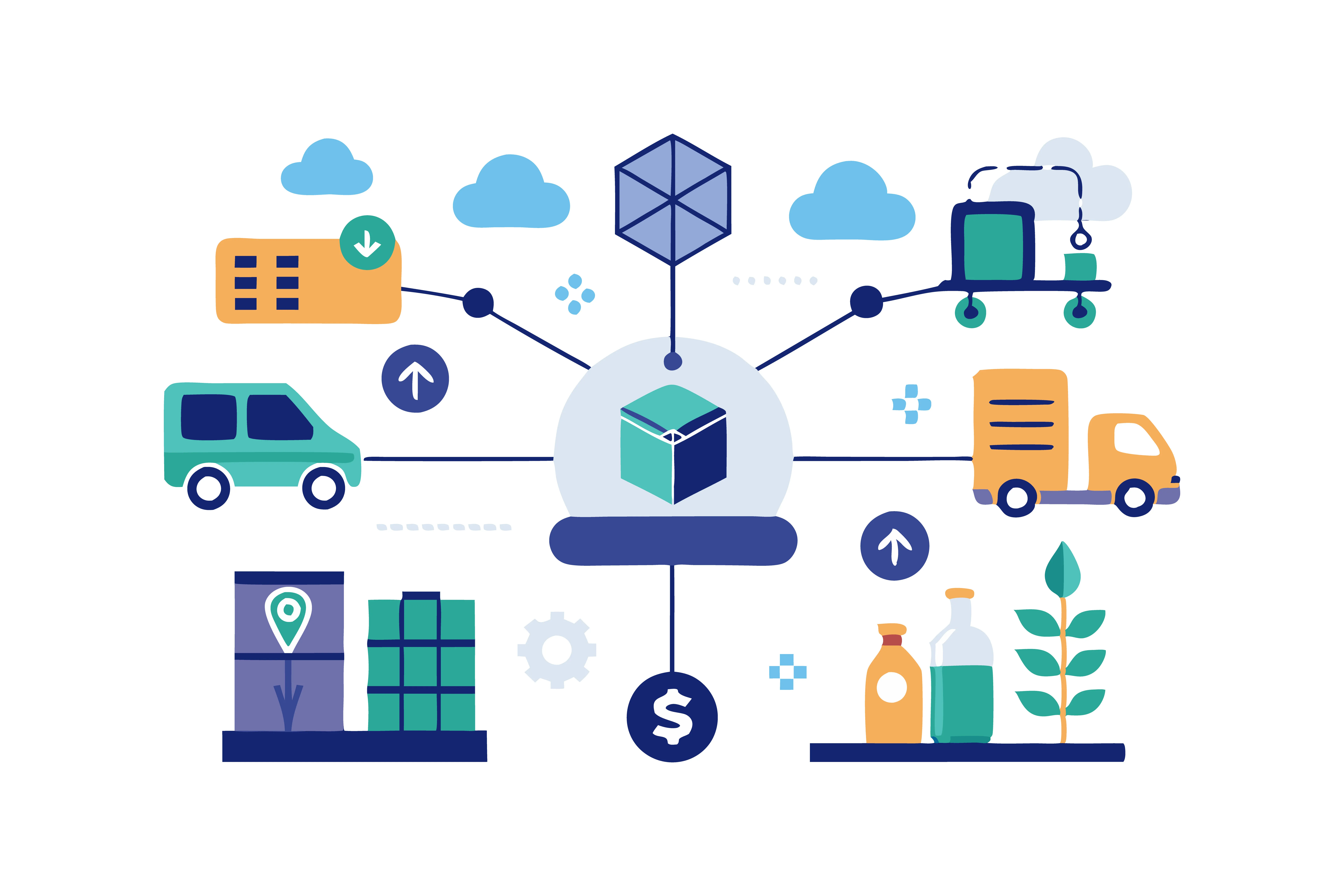A vital component of the constantly changing pharmaceutical and healthcare industries is the clinical supply chain. It guarantees that the required medical supplies, equipment, and experimental medications are delivered to clinical trials in a safe and effective manner. However, this supply chain is facing more and more difficulties due to globalization, regulatory scrutiny, and growing complexity. These difficulties range from data manipulation and counterfeiting to logistical inefficiencies and a lack of transparency. World BI is organizing Clinical Trial Supply Forum again where this topic is going to be discussed. The decentralized digital ledger system known as blockchain technology presents a revolutionary opportunity to improve the clinical supply chain's security, transparency, and integrity.
Understanding the Clinical Supply Chain
Products used in clinical trials are sourced, manufactured, stored, distributed, and tracked, among other operations that make up the clinical supply chain. Biological samples, lab equipment, diagnostic instruments, and experimental medications are a few examples of these items. Silos, manual processes, and a lack of real-time visibility can make coordination between sponsors, contract research organizations (CROs), logistics firms, regulatory bodies, and trial sites challenging.
The Vulnerabilities in the Current System
Several vulnerabilities plague the traditional clinical supply chain:
- Counterfeit Products: The World Health Organization estimates that up to 10% of medical products in low- and middle-income countries are substandard or falsified.
- Lack of Transparency: Fragmented systems make it difficult to trace product origins, monitor chain of custody, or verify data integrity.

- Manual Documentation: Paper-based processes are prone to human error and are hard to audit.
- Compliance Risks: Meeting regulatory requirements for data accuracy, patient safety, and product traceability is increasingly complex.
Blockchain: A Game-Changer for Clinical Supply Chain Security
A distributed, unchangeable database called blockchain securely and openly documents transactions over a network of computers. By cryptographically connecting each record, or "block," to the one before it, a tamper-proof information chain is produced.
Here’s how this technology can secure and optimize the clinical supply chain:
Enhanced Traceability and Transparency
Blockchain enables real-time, end-to-end visibility across the supply chain. Every movement of a clinical product from manufacturing to delivery at trial sites can be recorded on a shared ledger accessible by authorized stakeholders. This ensures:
- Full traceability of product origin, batch numbers, and custody changes.
- Immediate alerts on anomalies or delays.
- Improved accountability and compliance with regulatory standards.
Counterfeit Prevention
Blockchain technology allows each product unit to be given a distinct digital identity that is recorded on the ledger. Because of the immutability of these digital records, it is very difficult for fake goods to get into the supply chain unnoticed. It is possible to immediately identify and look into any differences in serial numbers, packing, or origin.
Improved Data Integrity
The cryptographic nature of blockchain makes sure that once information is recorded, it cannot be removed or changed without network consensus. In addition to providing a single source of truth for all parties involved, this significantly lowers the possibility of data manipulation, which is an essential component for audit trails and regulatory submissions.
Smart Contracts for Automation
Smart contracts are self-executing agreements coded into the blockchain. They can automate various supply chain activities, such as:
- Activating product shipments upon fulfillment of storage requirements.
- Automating regulatory reporting; releasing funds upon delivery confirmation and making sure that handling or temperature requirements are met.
- By removing manual steps and intermediaries, smart contracts reduce delays, costs, and human error.
Secure Data Sharing
Blockchain’s permissioned access model allows sensitive clinical data to be shared securely among stakeholders while maintaining patient confidentiality and data protection compliance (e.g., HIPAA, GDPR). It supports collaborative ecosystems without sacrificing data security.
Real-World Applications
Several initiatives and companies are already exploring or implementing blockchain solutions in clinical supply chains:
- IBM and Sonoco: Their “Pharma Portal” uses IBM Blockchain to track temperature-controlled drugs and vaccines across the supply chain.
- Modum: A blockchain-based platform that monitors environmental conditions (temperature, humidity) of pharmaceutical shipments in real time.
- Chronicled’s MediLedger Project: An industry consortium focused on blockchain-based solutions for drug verification and supply chain compliance in the U.S. under the Drug Supply Chain Security Act (DSCSA).
Regulatory Alignment
Global regulators are increasingly acknowledging the potential of blockchain in healthcare. For instance:
- The FDA launched a pilot project under the DSCSA to evaluate blockchain for improving drug traceability.
- The European Medicines Agency (EMA) is exploring blockchain for electronic product information and serialization compliance.
Leveraging Blockchain
Blockchain technology, originally designed for secure digital transactions, is now finding its way into various industries, including healthcare. The medical device sector, known for its stringent regulatory requirements and complex supply chains, stands to benefit significantly from blockchain’s capabilities. This blog explores how companies are using blockchain in medical device development to enhance security, transparency, and efficiency, ultimately improving patient care and safety.
Challenges and Considerations
Despite its promise, blockchain implementation in the clinical supply chain is not without challenges:
- Integration with Legacy Systems: Most clinical systems are not blockchain-native and require integration or replacement.
- Scalability: Public blockchains may face transaction speed and volume limitations.
- Cost and Complexity: Initial setup and training can be resource-intensive.
- Data Privacy: Ensuring compliance with strict patient data laws requires careful permission and encryption design.
- Standardization: Lack of common standards hinders cross-organizational adoption.

Future Outlook
Clinical supply chains will probably be significantly altered by blockchain as the pharmaceutical sector grows more patient-focused and data-driven. It is ideal for the sector because of its capacity to promote confidence, optimize processes, and guarantee product integrity. Blockchain can build intelligent, safe, and self-sufficient supply networks that instantly adjust to changing clinical settings when combined with IoT and AI technology.
Conclusion
Clinical supply chains are essential to the success of clinical trials, but they are increasingly threatened by operational inefficiencies, data silos, and counterfeiting. Blockchain provides a revolutionary solution by guaranteeing automation, security, and traceability through its decentralized, impenetrable architecture. The advantages of implementing blockchain, from increased openness and trust to better regulatory compliance, are too strong to be overlooked, despite the obstacles that still exist. Investigating how blockchain technology can be used to protect clinical research and patient care in the future is crucial for all parties involved in the healthcare ecosystem.
World BI Clinical Trial Supply Forum
Clinical Trial Supply Forum is a global event uniting leading pharmaceutical, biotech, and clinical research organizations along with AI, data science, regulatory, and clinical operations experts to explore the future of clinical supply. Clinical Trial Supply Forum organized by World BI, this dynamic conference focuses on clinical trial design, Clinical Supply Planning & Forecasting, Risk-based supply planning, decentralized trials, real-world data, Clinical drug product manufacturing, Cold chain and controlled room temperature logistics, Randomization, Supply chain simulation and trial supply management and AI-driven innovations in clinical research. The event fosters cross-industry collaboration and innovation to enhance the efficiency, diversity, and success of clinical trial supply globally.